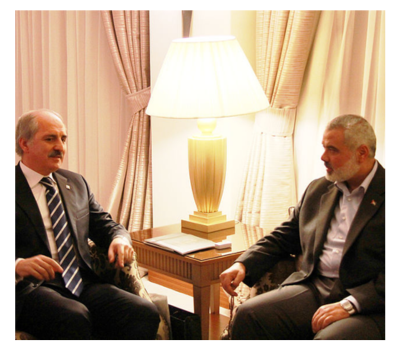Wilson Center, July 31, 2024
“The United States labeled him a “Specially Designated Global Terrorist” in 2018.”
Ismail Haniyeh, the political leader of the exiled wing of Hamas and its chief negotiator on issues of war and peace, was assassinated on July 31 during a visit to Tehran for the inauguration of President Masoud Pezeshkian. He had also met just hours earlier with Supreme Leader Ayatollah Ali Khamenei, a sign of Haniyeh’s standing with Iran. The stunning attack, widely assumed to be by Israel, evoked rage in Iran and from its network in the so-called Axis of Resistance. In a statement, the armed wing of Hamas said the assassination would “take the battle to new
dimensions and have major repercussions.” Khamenei said Iran had a duty to avenge Haniyeh’s death and warned Israel of “harsh punishment.”
Iran said Washington shared responsibility for Haniyeh’s killing because of its military support for Israel before and during the Gaza War. From Singapore, Secretary of State Antony Blinken denied that the United States had been either forewarned or involved in the attack.
The assassination reflected escalating tensions across the Middle East. Just a day earlier, on July 30, an Israeli airstrike on southern Beirut killed Fuad Sukr, a senior Hezbollah commander linked by Israel to the attack on the Druze village of Majdal Shams in the Israeli-occupied Golan Heights, which had killed 12 children or teenagers on July 27. The escalation between Israel and Iran’s network of allies coincided with a US airstrike on an Iranian-backed militia in Iraq on July 30—the first since February. The Pentagon claimed that fighters in the Popular Mobilization forces were preparing strikes against US forces based in Iraq and neighboring Syria to prevent ISIS from retaking territory—an operation unrelated to the Arab-Israel conflict.… [To read the full article, click here]


